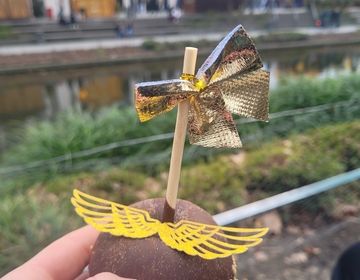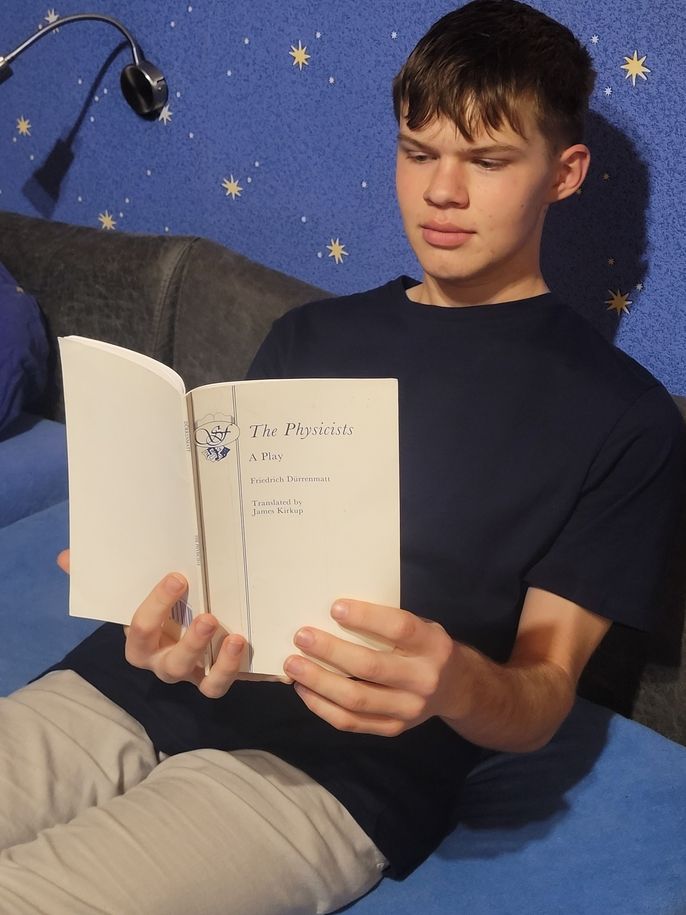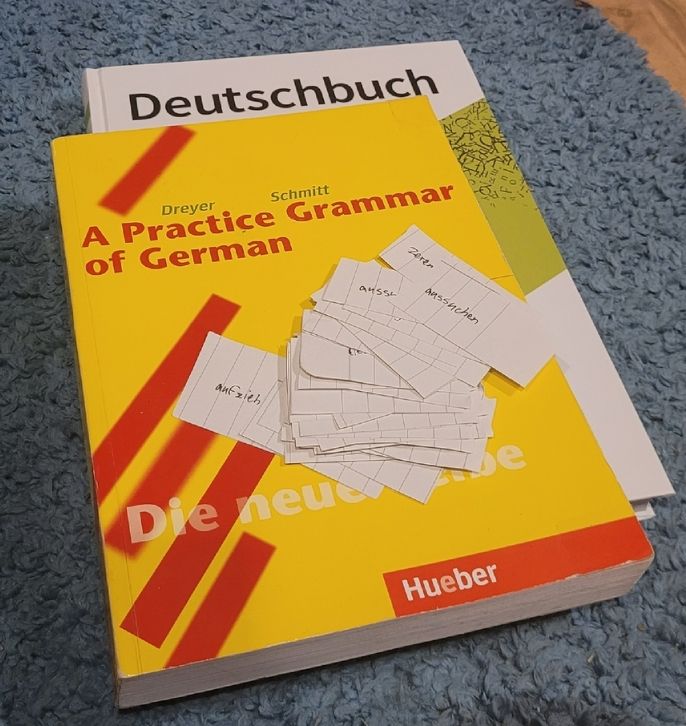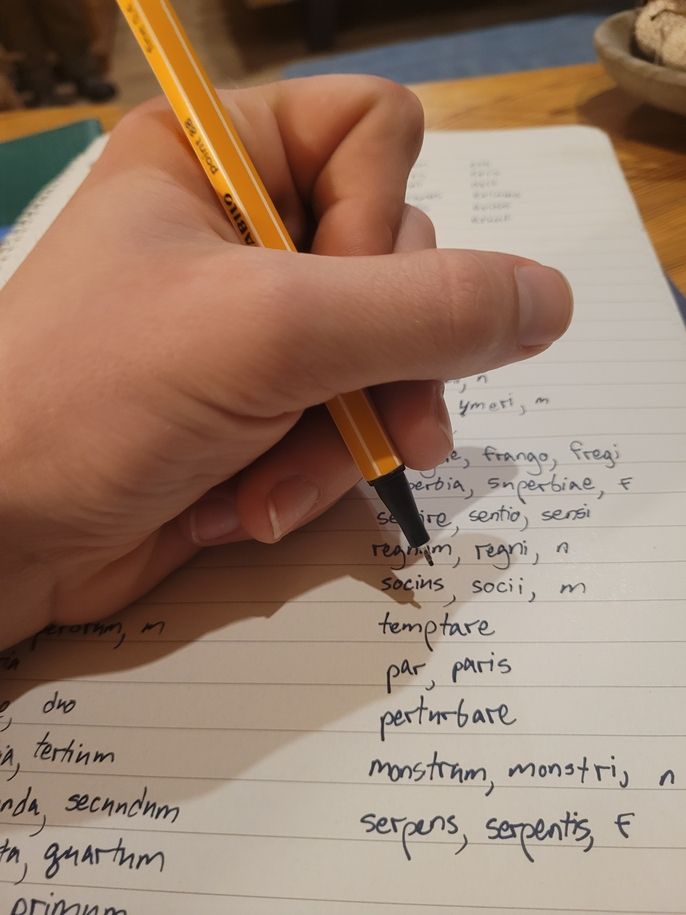Learning Languages in Germany
Thomas is an American student studying in Germany as part of the CBYX (Congress-Bundestag Youth Exchange) scholarship exchange program.
Twenty questions sit on my desk, staring up at me. This is bad.
The paper is supposed to test my knowledge of English, which is quite good!
But the test? It’s in German.
My finger traces along the unintelligible words as I search for anything I recognize. Nothing. I write down guesses, hoping that at least something is close to my random answers. All around me, my classmates seem to know exactly what they're doing. Glancing up at the clock mounted above the chalkboard, I watch the seconds tick by. Our teacher picks up a piece of lavender-colored chalk and starts to write our homework assignment in flowery English. Forcing ink to paper, I make myself finish the rest of the questions. It’ll all work out, I tell myself.
German students start taking English in the fifth grade. They start with first-grade-level material and build by one grade level per year. By ninth grade, this puts them at the level of fifth-graders in the United States. Of course, their spoken English is much better developed due to the prevalence of American TV and social media.
Our class of 23 students has all the same lessons, so my reading material has become significantly easier. (Especially over that of the college English class I had to take over the summer to stay on track with graduation requirements!) Still, the complexity of adding German into the mix makes it more than challenging enough.
New class, new room. My teacher flicks her scarf over her shoulder and begins to write out tables for participle conjugation. Without a doubt, Latin is my most challenging course. I try to follow along, but can’t keep up when she starts to explain sentence trees in rapid German. Scribbling as fast as I can, I attempt to capture as much as possible to translate when I get home. After she finishes speaking, I lean over to the boy next to me and ask what that last part – about homework – was. Since I still don’t have all my textbooks, I take a photo of the nightly assignment. With that, we pack up our things and move to the next class.
Students pick up their third language soon after starting English, putting the other students a year ahead of me in their language instruction. Additionally, it becomes harder to participate in class translations when I understand the Latin, but don’t know the German for it! Still, I push through, reviewing grammar tables every night and aided by my strong knowledge of the mythological tales we’re reading about – something I have learned far more about than my German peers.
I write it in German, then cross out half of my work. Again and again, until a reasonable text finally appears. I ask my friend sitting next to me if he can read it. He does, and he helps me change a few words. I sit and continue to listen as the class discusses the play we are reading, "Die Physiker" ("The Physicists"). During the five-minute Pauße (break), I go up to my teacher and ask if she can give my analysis a review. Thrilled that her exchange student is making such an effort early on, she helps me fix a few grammatical errors. After the break ends, we return to student presentations.
Toward the end of the class, our teacher calls me up to present! Half sheet of paper in trembling hand, I approach the front of the classroom. It’s not great: I stutter through, trying to sound out syllables as I go. But when I finally reach the end, my classmates all cheer! With a smile on my face, I return to my seat. A kid sitting one row over leans over to offer a couple of pronunciation tips. What a great way to end the day!
Fortunately, as far as language classes go, plays tend to focus more on ideas than complex texts. Still, reading the social drama has helped improve my vocabulary. As I study for all these classes, I gain a much stronger understanding of language. Not just sentence structure and verb cases, but of how words can be shaped and used to create meaning. Within each language there is hidden beauty, waiting to be sought out.
Related Posts

Traveling from Germany to Luxembourg
Traveling within Europe is almost too easy! In the U.S., I can drive for house without making it out of the state. But from Germany, other countries are a mere jump away!

German Holiday Traditions: Christmas Camels?
I went to the Christmas market expecting the familiar comforts I’ve come to associate with December here in Germany.

A Winter Wonderland: Germany's Christmas Markets
I pull up the hood of my jacket to block the biting cold winter air, walking past the auto barricades and into the Christmas market.



